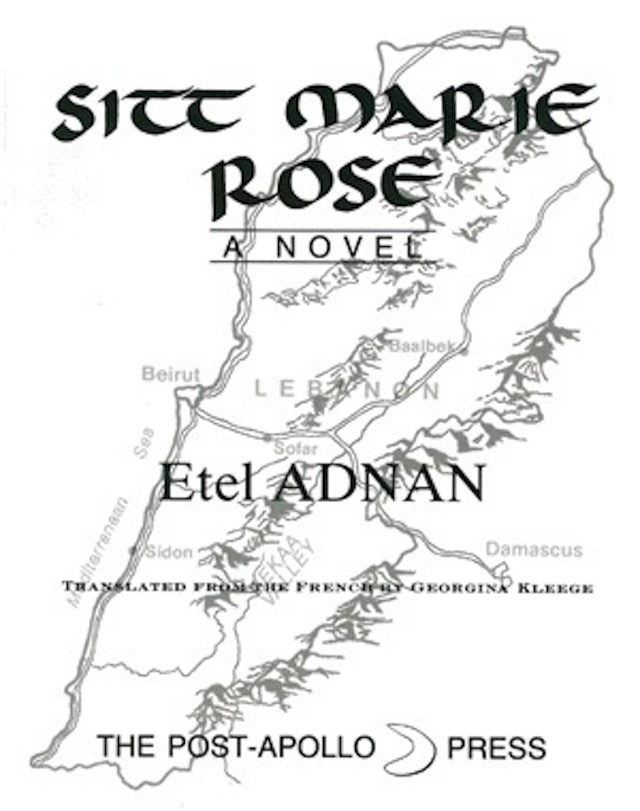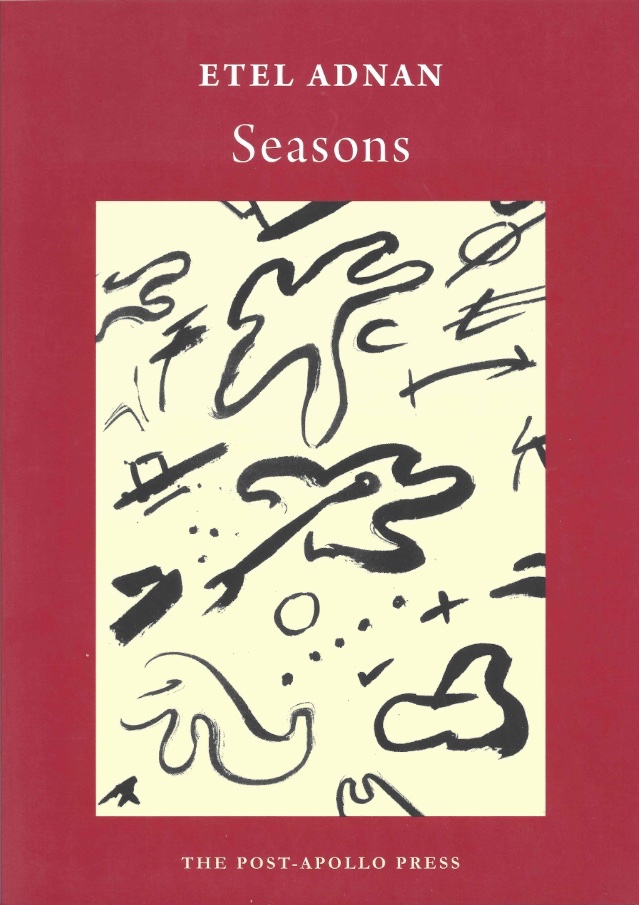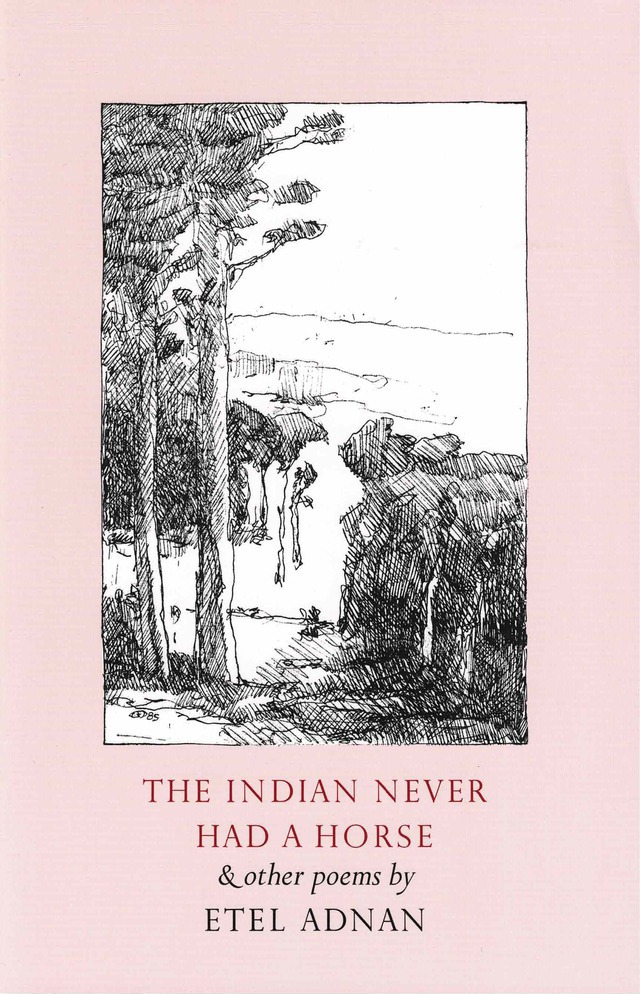Reprinted with a new foreword by Jalal Toufic
Translated from the French by the author. “From time to time, there occurs what suspends time, revelation—at least for certain people, martyrs. But then the apocalypse, revelation, is withdrawn, occulted by the ‘apocalypse,’ the surpassing disaster, so that symptomatically apocalypse’s primary sense (from Greek apokalypsis, from apokalyptein to uncover, from apo- + kalyptein to cover) is occulted by its secondary meaning, and martyr’s primary sense, witness, is occulted by its secondary, vulgar meaning: ‘a person who suffers greatly or is killed because of their political or religious beliefs’… While the Arab ‘apocalypse’ as surpassing disaster leads to a withdrawal of Arabic tradition, the apocalypse as revelation leads to Arabic tradition’s vertiginous extension.”
— from the Foreword by Jalal Toufic
Etel Adnan
Praise for The Arab Apocalypse
This book, a masterwork of the dislocations and radiant outcries of the Arab world, reaffirms Etel Adnan as among the foremost poets of the French Language. The Arab Apocalypse is an immersion into a rapture of chaos clawing towards destiny, and nullified hope refusing its zero. It is also the journey of soul through the cartography of a global immediacy rarely registered by maps, replete with signposts like hieroglyphs in a storm of shrapnel and broken glass. And above all it is a book that, though capable of being read in its orderly sequence, has so surrendered to “being there,” it can rivet the sensibility to the Middle Eastern condition at any point in the text—so rapid are its mutations, so becoming its becomingness—like a wisdom book or a book of Changes.
— Jack Hirschman
The power of Adnan’s language and imagery reminds us that she is indeed one of the most significant post-modern poets in contemporary Arab culture.
— Kamal Boullatta, Merip Report
The Arab Apocalypse is, to date, Adnan’s most triumphant battle with the exactness of words.
— Douglas Powell, Poetry Flash
The poem invokes a mythic past of Gilgamesh, Tammouz, and Ishtar to presage a present that resists narration, The Arab Apocalypse contests an uncritical reflection on the immediate historical past.
— Barbara Harlow, American Book Review
It has a power and intensity that few poets today can muster—only Allen Ginsberg’s Howl comes to mind.
— Alice Molloy, Mama Bears





Of the several rubrics under which The Arab Apocalypse may be read — hybrid text, visual poetry, surrealism, translation, postcolonialism — it is its nature as a work of witness that most commands my attention.
— Aditi Machado, Jacket2
Opposing the volcanic with the solar, Adnan evokes the power of the immanent as a power outshining the light of the sun. This power will produce a kind of interruption—an apocalypse—of the human that may lead to a night of “peace and knowledge” (a wish the book closes with).
— Thom Donovan, The Poetry Foundation.